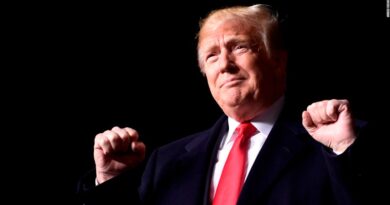America’s Crisis of Confidence: Rising Mistrust, Conspiracies, and Vaccine Hesitancy After COVID-19

Key Points
- Public confidence in science has declined sharply in recent years, with only 69 percent of Americans in May 2023 expressing confidence in scientists to act in the public’s best interest, compared to 86 percent in January 2019.
- Public confidence in science is starkly divided along partisan lines, but education, race, ethnicity, and religion also play significant roles.
- Climate change remains a divisive issue among Americans, but evolution appears less divisive today than it did a decade and a half ago.
- Party affiliation, age, education, media-consumption habits, and religious identity all influence Americans’ views of vaccines, but institutional trust also plays an important role.
Executive Summary
America is experiencing a crisis of expertise that has worsened since the COVID-19 pandemic. A nationally representative survey conducted by the Survey Center on American Life finds that a growing number of Americans are distrustful of scientific and medical experts. This distrust cuts across demographic lines but is especially acute among Republicans and evangelical Christians. This phenomenon poses significant challenges to democratic debate and public policymaking across a wide range of scientific, technological, and medical issues, including climate change, public health, and artificial intelligence (AI).
Most Americans still trust scientists to work in the public’s best interest, but that number has shrunk in recent years. Today, 69 percent of Americans express “some” or “a great deal” of confidence in scientists, compared to 86 percent in January 2019. Though Democrats are more likely to express confidence in scientists than Republicans are, partisanship is not the only factor influencing public attitudes. Religion, education, race, and ethnicity also play important roles.
Religious Republicans express particularly high levels of distrust; of all religious groups, white evangelical Protestants express the lowest confidence in experts (46 percent). Meanwhile, secular Americans are the most likely to express high levels of confidence in scientists (80 percent).
Education is also important to public confidence in science. For instance, 84 percent of Americans with a bachelor’s degree or higher say they have “some” or “a great deal” of confidence that scientists are acting in the public’s best interest, compared to only 56 percent of Americans with a high school degree or less.
Between January 2019 and May 2023, the percentage of Hispanic and black Americans expressing a great deal of or some confidence in scientists dropped considerably— from 82 percent to 61 percent and 85 percent to 69 percent, respectively. In general, non-white Democrats today are half as likely as white Democrats to express a great deal of confidence in scientists.
Religion, education, race, ethnicity, and partisanship shape Americans’ views of science in complex ways. For example, Americans with higher levels of formal education have fewer doubts about mainstream scientific theories— such as human-caused climate change, evolution, and the Big Bang—but they are less likely to perceive a conflict between science and religion. Overall, evolution appears to be a less divisive issue today than it was a decade and a half ago, while climate change continues to be controversial. Democrats express greater fear than Republicans do about potential global threats from climate change, nuclear war, and pandemics. But Democrats and Republicans are equally concerned about a possible existential risk posed by AI.
Americans are broadly supportive of government oversight of scientific research, with more than three-quarters of Americans expressing support for government monitoring of new vaccine development and research on infectious diseases. Two-thirds of the public also believe the federal government should be involved in overseeing research on AI. Republicans are less likely to support government oversight of scientific research than Democrats are, but Democrats and Republicans express similar levels of confidence in industry scientists.
Republicans are also more likely than Democrats are to agree with conspiracy theories about widespread voter fraud, childhood vaccinations causing autism, and the COVID-19 pandemic having been planned by China as part of a biological weapons program. Racial and ethnic minorities are more likely to express uncertainty about a potential association between childhood vaccines and autism than white Americans are.
Party affiliation, age, education, media-consumption habits, and religious identity are all important factors influencing Americans’ views of vaccines. For instance, Americans who rely primarily on conservative media and social media for their news are less likely to have received a COVID-19 vaccine than are Americans who rely primarily on media outlets such as CNN, MSNBC, network news, NPR, and public television. Institutional trust also plays an important role. Even after controlling for party affiliation, higher levels of confidence in public institutions are correlated with higher vaccination rates among Americans.
Our findings suggest that political polarization is one of the biggest single factors in declining public confidence in science. But the crisis of expertise also appears to be consistent with—and perhaps an expression of— a widespread erosion of social trust concentrated among not only conservative Americans but also those with lower levels of education, certain religious groups, and racial and ethnic minorities.
This article has been archived for your research. The original version from American Enterprise Institute can be found here.


